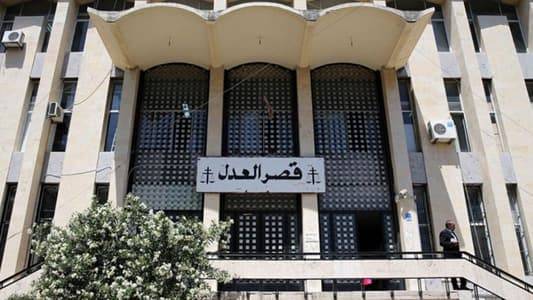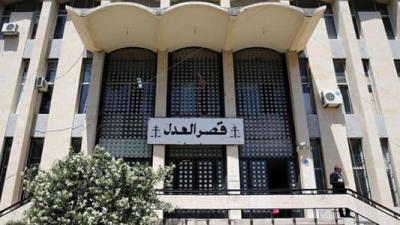Today, the Palace of Justice is the center of activity in the country: A judicial meeting of the Supreme Judicial Council is taking place, attended by the Minister of Justice, with the agenda focused on appointing another investigating judge, different from the current judge Tarek Bitar, or appointing a substitute judge according to the laws of criminal procedure. Before the meeting, a parliamentary delegation representing the "Lebanese Forces," the Kataeb Party, and the Change Movement is heading to the Palace of Justice at ten o'clock to meet with the head of the Supreme Judicial Council, Judge Sohail Aboud, and the Minister of Justice in the caretaker government, Henry Khoury.
In a manner reminiscent of protagonists in “Arab drama” or “super men” in American Hollywood films, Lebanon has witnessed something akin to a coup regarding the Beirut port explosion case, whether it concerns the investigating judge or the individuals detained during the investigation, or the claims that have emerged targeting the prosecutor general, Judge Ghassan Oueidat, who was yesterday at the center of decisions in various directions:
1. He suspended Judge Bitar and filed an indictment against him before the General Assembly of the Court of Cassation.
2. He issued a travel ban against him via a letter to the General Directorate of General Security.
3. He released all detainees under ongoing investigations into the port explosion.
In the evening, the victims' families, after a meeting at their association’s center, headed to prosecutor general Oueidat’s home to protest against the release decisions. Regardless of the legality of the ongoing situation regarding the legal confrontation between the investigating judge and the Cassation Public Prosecution, it is clear that the stance has taken on new dimensions. The government requested that general directors, including the Director General of Customs, Badri Daher, report to the Prime Minister, while lower-ranking employees report to the relevant minister, whether the Minister of Finance or the Minister of Public Works.
Political sources expressed fears of worsening conditions following the clashes in judicial authority that have returned the investigation file regarding the Beirut port explosion backward, reopening wounds for the victims' families who had hoped for the investigation to expedite toward a conclusion soon. The sources indicated that the confrontational trend dominating the investigation file has given the impression of ambiguous scenarios, suggesting that the case trajectory has reached its end after the release of all detainees, and intentional barriers have been placed before the completion of the remaining investigation steps and the identification of suspects in this terrorist explosion, which destroyed a significant part of Beirut and caused hundreds of deaths and injuries, despite all public reassurances that the file would not be closed as some might think.
The sources also pointed out that since the beginning of the investigation, there have been several attempts to deliberately obstruct it by parties reportedly behind the entry of the aluminum shipment into the Beirut port. This reached its peak with a series of threats against the judge in charge of the investigation, followed by a visit from Hezbollah official Wafiq Safa to the Palace of Justice for this purpose, which was subsequently followed by partisan protests outside the Palace of Justice, culminating in gunfire in the Tayouneh and Ain el-Rummaneh areas, resulting in casualties and injuries.
The sources emphasized that the temporary suspension of Judge Tarek Bitar's work in the Beirut port explosion case, due to the lawsuits raised by several wanted individuals, has temporarily frozen the course of investigations and prosecutions, after all attempts to remove the investigating judge from the file through the cabinet or the Supreme Judicial Council failed. This has effectively served as a temporary and concealed closure of the file to avoid unforeseen complications.
The sources considered that the investigating judge made two serious errors: the first being his resumption of duties in the investigation based on personal observations, not through the legal frameworks in place, thus exceeding his authority; and the second being his indictment of prosecutor general Ghassan Oueidat regarding the file, which also contradicts the laws regulating the judiciary's work and the powers of each judge in his position, given that Judge Oueidat is the head of all prosecutions—an impulsive move either to present himself as though he is consolidating the judicial authority solely in his person, or to provoke negative reactions paving the way for a long-term freeze of the investigation file, which has been partially realized.
The sources questioned whether the counter-judicial measures taken by prosecutor general Oueidat against Judge Tarek Bitar have set matters straight and contributed to blocking any unpredictable reactions from the party entities opposing the continuation of the investigation by any judge, fearing the uncovering of the case's hidden truths, or whether the existing judicial confrontation could lead to political and popular reactions that could have negative repercussions beyond what is expected.




